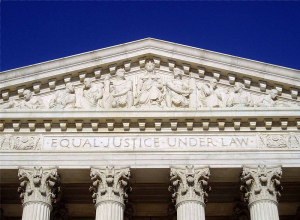 Many years ago, I attended my first meeting as a newly-elected representative on our church’s parish council. I was enthused, energized. Then an older man, a veteran of the council, pulled me aside before the meeting started and gave me a warning. “Now you’re going to have your eyes opened, ” he said. “It’s a lot easier when you don’t know about all of the issues.” And, of course, he was right.
Many years ago, I attended my first meeting as a newly-elected representative on our church’s parish council. I was enthused, energized. Then an older man, a veteran of the council, pulled me aside before the meeting started and gave me a warning. “Now you’re going to have your eyes opened, ” he said. “It’s a lot easier when you don’t know about all of the issues.” And, of course, he was right.
I had the same experience some time later when I became involved in the most pressing problem facing our legal system: the inability of poor people to afford legal representation for the important life-changing issues they face. I had been involved in pro bono from the day I was graduated from Marquette, handling divorces, landlord-tenant issues, even a capital punishment case in Texas. I enjoyed the rewarding nature of the work and appreciated the hands-on experience. The clients I represented seemed to appreciate having a lawyer.
But while I was helping individuals now and then, and feeling comfortable that I was doing some good, I was blissfully ignorant of the big picture issues and challenges that had the system in a chokehold — the lack of funding for legal service providers, the reluctance of lawyers to become involved in pro bono, the resistance of some to changes in the delivery of legal services to poor people, the lack of leadership from those in the best position to lead. My eyes were anything but open.


